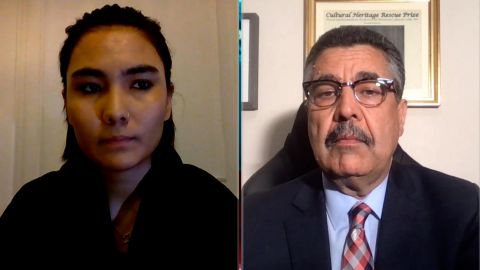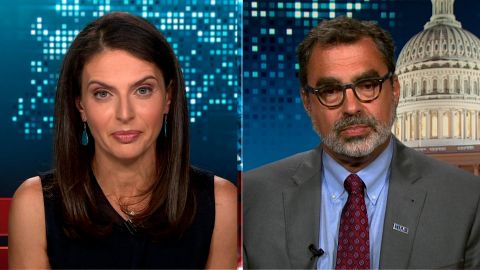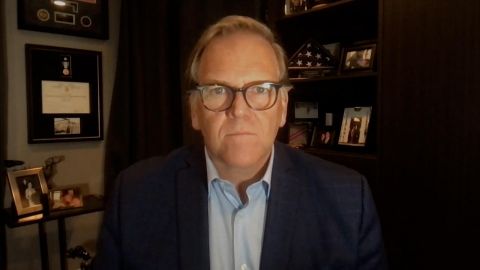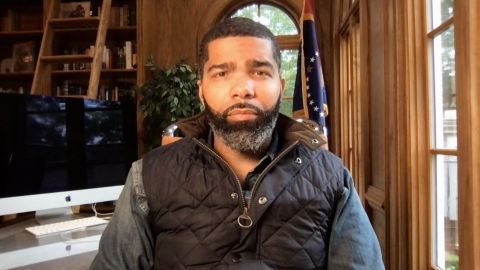Read Transcript EXPAND
BIANNA GOLODRYGA: And you talk about the 1968 refugee convention and laws in place that should have avoided these situations. Obviously, it’s not trying to repeat history after we saw the St. Louis turned around. These were 900 German-Jews in 1939 who had fled Europe, hoping to either come to the U.S. or Cuba. And yet, we’re still seeing this bureaucracy and red tape and unanswered questions as to why more refugees weren’t processed.
MARK HETFIELD, PRESIDENT, HEBREW IMMIGRANT AID SOCIETY: Yes. Bianna, I’m glad you raise that because that is what concerns me the most. This is not the first time we’ve had a large number of refugees leaving on an emergency basis that we have to help. And Congress in 1980 gave the president all the tools he needs to do such an evacuation with the Refugee Act of 1980. And the fact of the matter is over the last 40 years the executive branch has put more, and more and more red tape into that process, erected more and more on tackles, weighed down the process to such a point that it can no longer move quickly. It used to be that refugees were brought into this country through this parole process because there was no way for them to come in as refugees. Congress changed that in 1980. Gave this mechanism for refugees to be rescued and resettled here as refugees. But it is too mired down in red tape right now for them to use it that way. So once again we’re relying on parole, which is ill suited for this, but it’s better suited than the refugee program right now. We have to take a hard look at that program and try to make sure it is responsive to an emergency need like what we’re facing today.
GOLODRYGA: And it is not just the United States that finds themselves in this situation. A lot of our allies, richer countries like the U.K. are not taking in as many as critics say they should. The United Kingdom said – they said they would be taking in, I believe, 20,000 refugees over a span of five years. And I spoke with the Albanian Prime Minister, a small country of only 3 million, one of the poorest countries in Europe who’s taking in upwards of 4,000 or 5,000 refugees. And he told me why they’re doing that. And he slightly admonished other richer countries that aren’t. Take a listen.
(BEGIN VIDEO CLIP)
EDI RAMA, PRIME MINISTER OF ALBANIA: It’s in the honor of all the NATO members and of all this community of countries that have been promoting by the force of example and protecting by the examples of force, ideas and values to stand up.
About This Episode EXPAND
Chokwe Antar Lumumba; Mike Rogers; Mark Hetfield; Ahmad Sarmast and Zarifa Adiba
LEARN MORE



